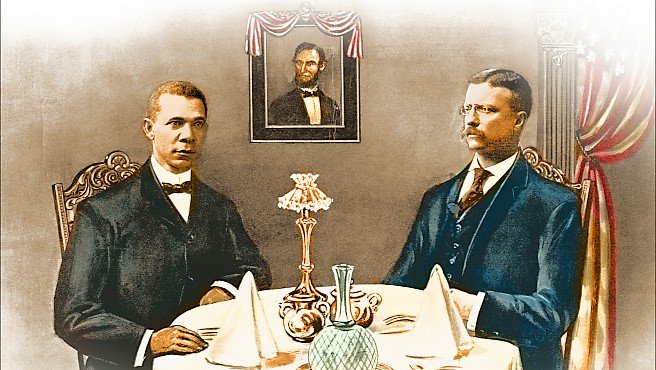Abraham Lincoln, a former one-term Congressman and lawyer, condemned slavery - this day in 1854 - during a speech criticizing the Kansas-Nebraska Act, which Congress had passed five months earlier. The future president bitterly criticized it. saying slavery was “immoral.” (more)
/2
The Kansas-Nebraska Act allowed two new territories—Kansas and Nebraska—to join the United States, with the citizens of each given the power to determine whether slavery would be allowed or disallowed
The Kansas-Nebraska Act allowed two new territories—Kansas and Nebraska—to join the United States, with the citizens of each given the power to determine whether slavery would be allowed or disallowed
/3
Abolitionists like Lincoln hoped to convince lawmakers in the new territories to ban slavery. He believed the law went against the founding American principle that “all men are created equal.” He was determined to outlaw the spread of slavery but worried it could lead to war
Abolitionists like Lincoln hoped to convince lawmakers in the new territories to ban slavery. He believed the law went against the founding American principle that “all men are created equal.” He was determined to outlaw the spread of slavery but worried it could lead to war
/4
Lincoln’s eloquent opposition to slavery raised his political profile across the nation; although he lost an Illinois senate race to Stephen Douglas in 1858, he would win the presidency in 1860 - with 40% of the popular vote
Lincoln’s eloquent opposition to slavery raised his political profile across the nation; although he lost an Illinois senate race to Stephen Douglas in 1858, he would win the presidency in 1860 - with 40% of the popular vote
Theodore Roosevelt shocked the nation by dining with a black man—Booker T. Washington—in the White House, this day in 1901. The president caused a national sensation by having dinner with Washington, the African-American educator who had become a close friend (more)
/2
Other presidents had invited African-Americans to meetings at the White House, but never for a meal. And segregation was law in 1901. The president was later praised by some but fiercely criticized by others; Washington received death threats
Other presidents had invited African-Americans to meetings at the White House, but never for a meal. And segregation was law in 1901. The president was later praised by some but fiercely criticized by others; Washington received death threats
William Howard Taft became the first sitting president to visit Mexico - this day in 1909. Shown here with Mexico& #39;s Porfirio Díaz, both escaped a possible assassination attempt when a man holding a gun got within three feet of them
Easily the most dangerous chapter of the Cold War began - this day 1962 - when John F. Kennedy was informed that the Soviet Union was placing nuclear missiles in Cuba, that were capable of destroying most of the United States. Here: JFK& #39;s schedule that day (more)

 Read on Twitter
Read on Twitter






